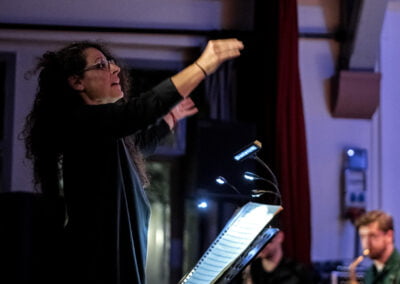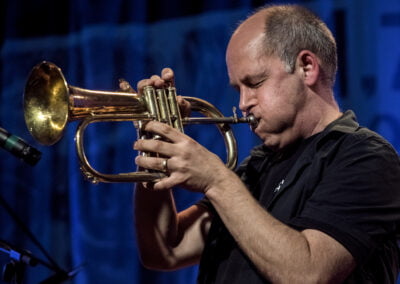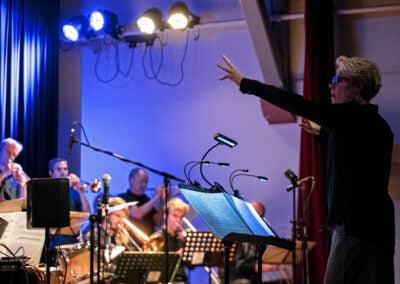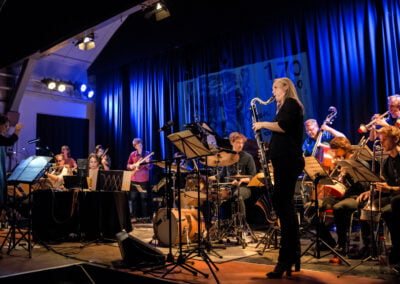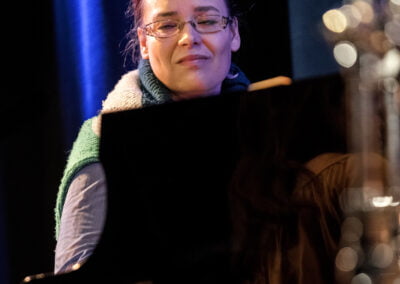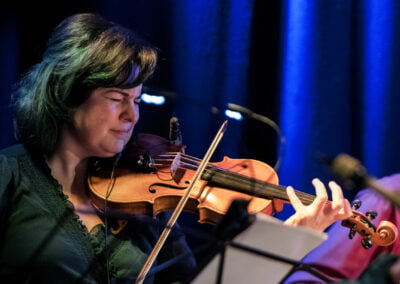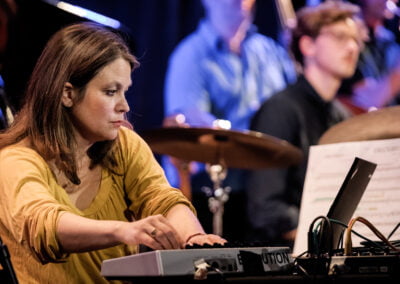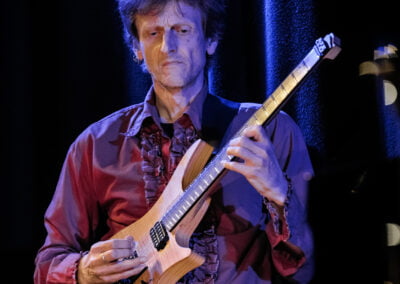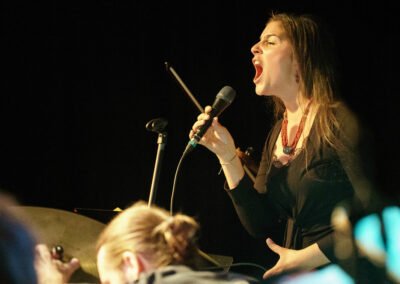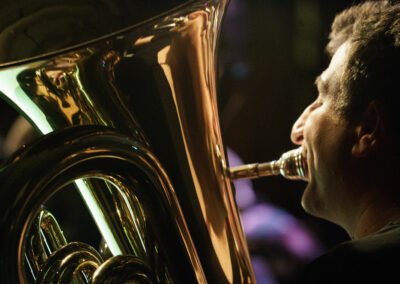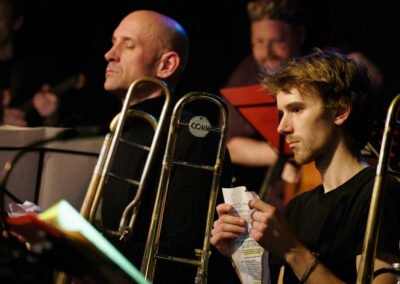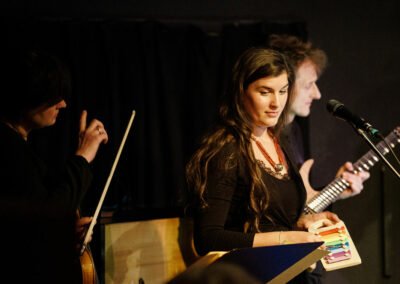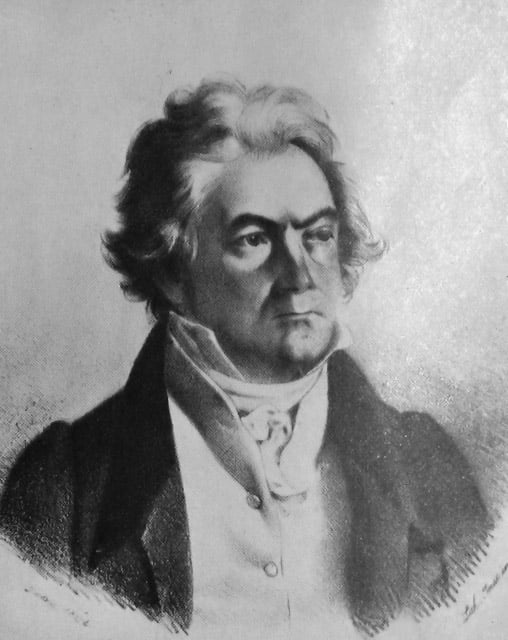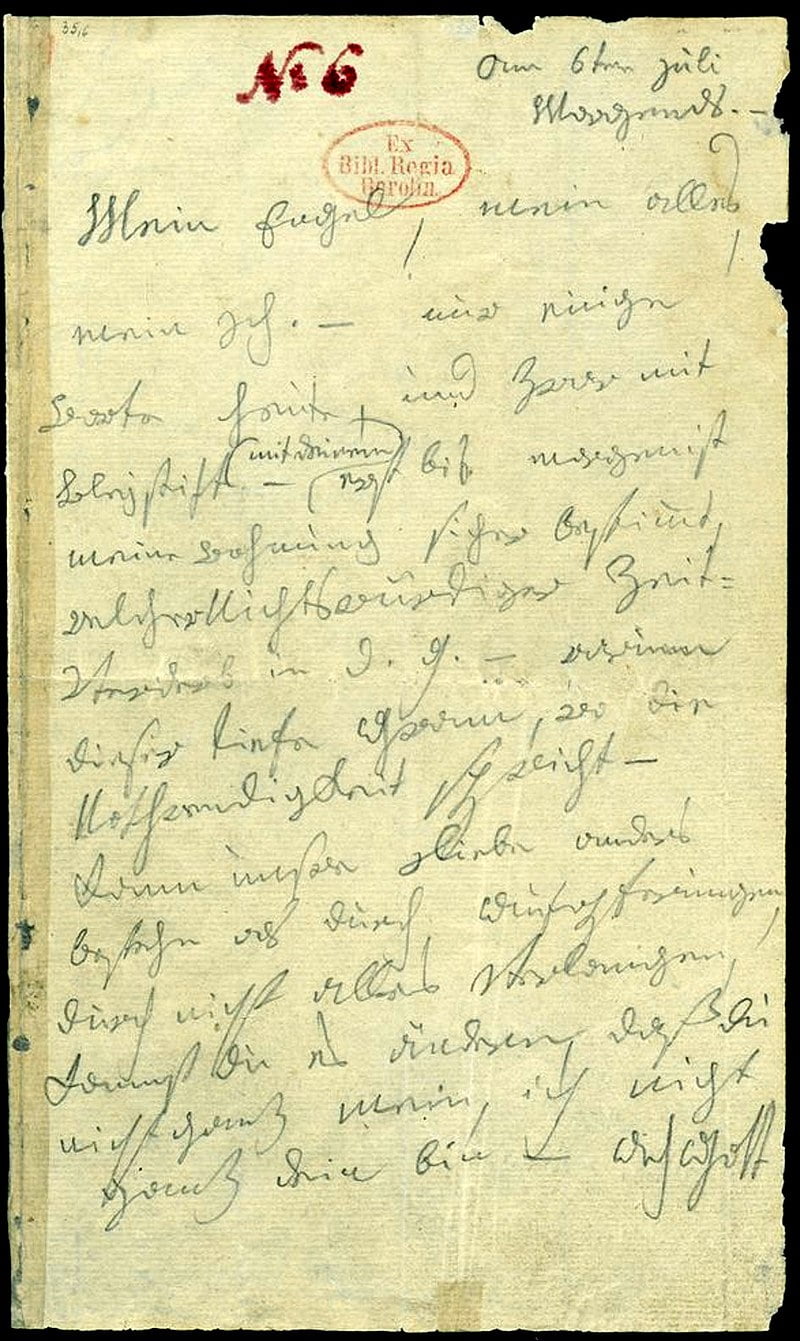
Re: Immortal Beloved / BTHVN 2020
PROJECT
On the occasion of the Beethoven Festival Bonn 2020, Caroline Thon and Christina Fuchs were commissioned to rearrange compositions by Beethoven for the FUCHSTHONE ORCHESTRA. Elements based on Beethoven’s symphonies and string quartets were picked up, re-interpreted and transformed into something new. The concert was broadcast as a “livestream” directly from the Stadtgarten in Cologne.
The line-up on Dec. 4th, 2020 in the Stadtgarten:
Caroline Thon, Christina Fuchs (composition, conduction, arrangement),
Roger Hanschel, Theresia Phillip, Martin Gasser, Jens Böckamp (saxes),
Matthias Schwengler, Matthias Knoop, Matthias Bergmann (trumpets),
Philipp Schittek, Matthias Schuller (trombones),
Wolf Schenk (basstrombone, tuba),
Zuzana Leharovà (violin),
Filippa Gojo (voice),
Sebastian Scobel (piano),
Andreas Wahl (guitar),
Alex Morsey (bass),
Jens Düppe (drums),
Eva Pöpplein (electronics, live samples)
Electronic sounds are catapulting us into the present time and besides, the question emerges how close the pianist and improviser Ludwig von Beethoven came towards the important element of the soloist in contemporary jazz music?
The following pieces are on the program:
1) ENSUITE à MINEUR
(Composition/Arr.: Christina Fuchs)
Based on: Ludwig van Beethoven,
String Quartet No.15, Opus 132 / fragment
1st movement Assai sostenuto
Opus 132 is Beethoven’s second to last string quartet and was composed 2 years before his death, at a time when he had already completely lost his hearing.
Christina Fuchs:
“I was wondering: what might it have felt/sounded like to hear the music deeply inside, but outwardly perceive only a distorted image of it, if at all? Comprehensible all the frustration, anger and despair – fascinating beautiful the music of the inner landscapes.”
2) SPURENSUCHE OPUS 13
(Composition/Arr.: Caroline Thon)
Basierend auf: Ludwig van Beethoven,
Sonate für Klavier Nr. 8 c-Moll, op. 13, „Pathétique“
3. Satz, Allegro
Based on: Ludwig van Beethoven,
Sonata for Piano No. 8 in C minor, op. 13, “Pathétique”.
3rd movement, Allegro
In “Spurensuche” Caroline Thon reworks the “Piano Sonata No. 8, opus 13” (1798), which is a rather early work by Beethoven that strikingly oscillates between bursts of power and sensitivity.
The motives – especially in the tutti parts – are all taken from the original work, only they are either rhythmically condensed or slowed down and sound in a contemporary, jazz harmonic context.

3) IMMORTAL BELOVED LOVELETTER
(Composition/Arr.: Christina Fuchs)
Based on: Ludwig van Beethoven
Symphony No.7 Opus 92 / fragment
2nd movement Allegretto
Christina Fuchs:
“This slow movement is so insanely beautifully yearning that I re-wrote it as a love letter to his Immortal Beloved (whoever that might have been: Giulietta, Therese, Amalie, Josephine, Dorothea, Antonie, Bettina? )
Myriads of researchers have tried to solve this mystery by some daring theories, however, it might be that the way is the goal:
There is a strong, rhythmic persistence and tension about it, as well as a certain despair, because he will never find her, the immortal beloved…”
4) BEGEGNUNG NR.14, OPUS 131
(Composition/Arr.: Caroline Thon)
Based on: Ludwig van Beethoven:
String Quartet No.14, Opus 131
1st movement. Adagio, ma non troppo e molto expressivo
The open form of the fugue in the original work is adopted in “Begegnung Nr. 14” and the opening motive of the 1st movement is at first embedded in a contemporary jazz context and then developed independently.
To approach the inner dilemma of Beethoven, who was already completely deaf at the time of its creation, a quotation from a malicious critic on the occasion of the premiere of this string quartet is counterpointed with excerpts based on the “Heiligenstätter Testament” (1802), which is considered his intended farewell letter.
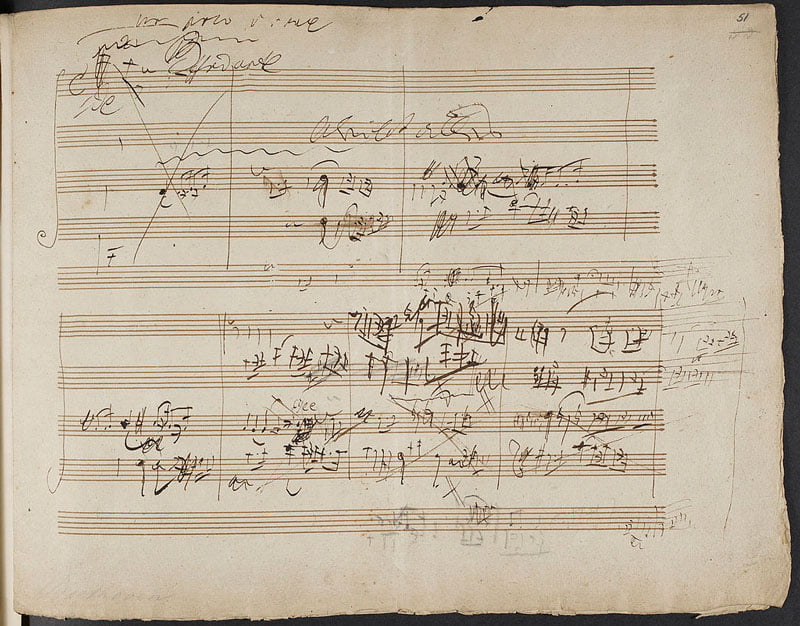
Press says:
“Jazz premiere for Ludwig von Beethoven!
Musicians and composers from Cologne are convincing with a strong festival contribution…”

